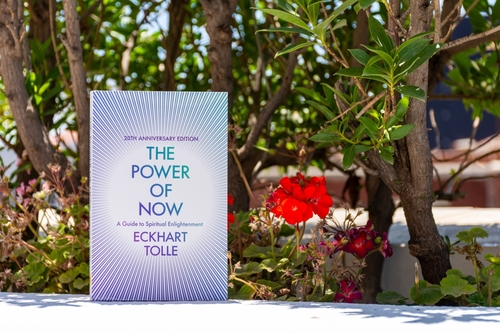
For more than twenty years, I was hooked on self-help and personal development.
I devoured books, courses, and ideas in pursuit of realising greater potential in myself and others.
One of the themes often explored is that big question:
What is my purpose?
It’s something that never seems to go out of fashion. Just Google the idea and you’ll discover many books, podcasts, and TED talks about it. They offer tools, tips, and techniques to help us ‘find’ our purpose.
Who doesn’t want to live from a greater sense of purpose?
The idea of a life guided by a clear purpose is intoxicating. We associate it with energy, passion, inspiration, creativity, and resilience.
We see people and organisations who are fuelled by a mission and think, that’s what it must feel like to be truly alive.
If you reflect on your own life, you can probably recall moments when everything felt rich with meaning. Times when you were at your best — unstoppable, fully alive, plugged into something bigger.
Steve Jobs famous Stanford speech
Jobs captured this beautifully in his famous address to Stanford graduates:
“You’ve got to find what you love… The only way to do great work is to love what you do. If you haven’t found it yet, keep looking, and don’t settle.”
It’s a message that has echoed through time. Countless others — from athletes to artists — have said something similar.
But what if they were wrong?
Could it be that all this well-intentioned advice is pointing us in the wrong direction?
The message is:
Your purpose is “out there” somewhere, waiting to be discovered, and your job is to keep searching until you find it.
But what if you don’t?
Just give up. Conclude that you just weren’t lucky enough to find your ‘thing’. And settle for a more mundane life of just going through the motions.
This is where many people get stuck.
I tried to follow the advice, but when no lightning bolt of clarity arrived, I concluded I must be missing something.
And I was. But not in the way I thought.
What I eventually discovered about purpose is that it’s not ‘out there’.
The moment we turn purpose into a destination — a thing to find — we’ve already lost sight of it. We’ve made it external. Separate. Something that exists apart from us.
Purpose doesn’t work that way
Life is lived from the inside-out, not the outside-in. Purpose is not something bestowed upon us by the right job, cause, or circumstance. Those things can be wonderful, of course, but they don’t create our sense of meaning.
Purpose is realised. It surfaces naturally when our mind is clear, present, and engaged with life as it is.
In that state, everything feels purposeful. Even the ordinary. Especially the ordinary.
“As soon as you honor the present moment, all unhappiness and struggle dissolve, and life begins to flow with joy and ease. When you act out the present-moment awareness, whatever you do becomes imbued with a sense of quality, care, and love – even the most simple action.” Eckhart Tolle, The Power of Now.
PS. Interested in feeling more alive? Read about the power of the present moment. Click here.


